- About Us
- The Schools
-
Admissions
- Armed Forces Covenant
- Acceptance Form
- Admissions Process and Key Dates
- College Transport
- Ellesmere College 'Virtual Tours'
- Fees
- Insurances and Fees Refund Scheme
- International Students
- Methods of Payment
- New Parent Information
- Registration Form
- Scholarships & Bursaries
- Start of Term Arrangements
- Uniform
- Pupil Area
-
Parents' Area
- Catering
- College Policy Documents
- College Transport
- Ellesmere Newsletter
- External Examinations
- Fees
- Holiday Camps at Ellesmere
- In Touch
- Inspections
- Insurances and Fees Refund Scheme
- Methods of Payment
- New Parent Information
- Open Days & Events
- Parent Portal
- Parents' Society
- Scholarships & Bursaries
- Terms & Conditions
- Uniform
- Busnet
- Ellesmere Community

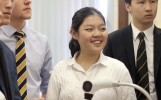 Ellesmere College Student Views - Alice Yang (China)
Ellesmere College Student Views - Alice Yang (China)

 Ellesmere College Student View - Lewis Hall
Ellesmere College Student View - Lewis Hall

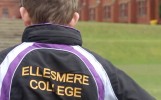 Ellesmere College Football Academy
Ellesmere College Football Academy

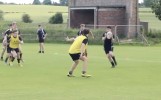 Ellesmere College Rugby Academy
Ellesmere College Rugby Academy

 Explore the Ellesmere Difference UK
Explore the Ellesmere Difference UK

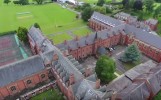 Ellesmere College - Aerial View
Ellesmere College - Aerial View

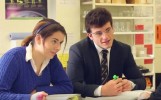 Edoardo and Tommaso
Edoardo and Tommaso

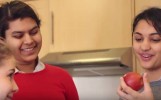 Tapaswini & Vanessa
Tapaswini & Vanessa

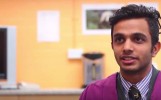 Student Views - Vansh Bajaj
Student Views - Vansh Bajaj

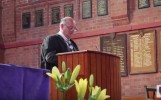 Speech Day 2015
Speech Day 2015

 Student Views - Richard Lay
Student Views - Richard Lay

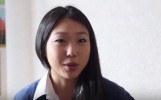 Student Views - Cassie Champrasit
Student Views - Cassie Champrasit

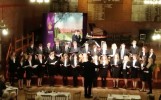 Chapel Choir
Chapel Choir

 Return To The Forbidden Planet Trailer
Return To The Forbidden Planet Trailer

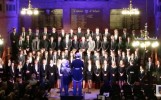 Talbot House 'I'm A Believer'
Talbot House 'I'm A Believer'

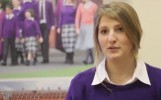 Students View - Tilly Walker
Students View - Tilly Walker

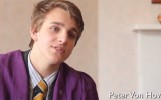 Students View - Peter Von Hoven
Students View - Peter Von Hoven

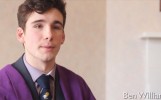 Students View - Ben Williams
Students View - Ben Williams

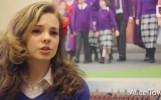 Student Views - Alice Tow
Student Views - Alice Tow

 Ellesmere College Presents Romeo & Juliet
Ellesmere College Presents Romeo & Juliet

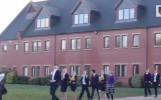 Lower School
Lower School
- Welcome to GCSE Choices
- Art & Design
- Biology
- BTEC Engineering Design
- Business Studies
- Chemistry
- Computer Science
- Design & Technology
- English as an Additional Language (EAL)
- English Language & Literature
- English Speaking Board ESB
- French
- Geography
- History
- Latin
- Maths & Further Maths
- Media Studies
- Music
- Physical Education
- Physics
- Religious Studies
- Spanish
- Support for Learning (SfL)
Ellesmere College Middle School: GCSE Choices
Welcome to GCSE Choices
Welcome to the Ellesmere College Middle School GCSE Choices page, and we are delighted that you are considering Ellesmere to continue your academic journey into Middle School and beyond.
The Middle School at Ellesmere is a vibrant and successful community, offering a broad range of full-time courses for students who are mix of UK and international students, and enjoy day, weekly or full boarding options. With an even broader range of exciting and challenging co-curricular opportunities that develop leadership, confidence and resilience, the College ensures it delivers students that are indeed 'Life:Ready' – develop them into ambassadors, role models and leaders.
For more information or to enquire about our Middle School please visit: Contact Us
The Middle School Curriculum
The Middle School curriculum at Ellesmere College begins with a broad range of subjects which is then used as a basis on which to build gradual specialisation. The subjects offered reflect the National Curriculum, but the School takes advantage of its independence to develop opportunities beyond the National Curriculum confines. Individual tutorials review development and Period Grades provide a snapshot of progress. Formal reports are sent to parents at stages throughout the academic year.
Striving towards a high academic standard is a priority. Each pupil is assigned to a personal tutor who, together with his or her Housemaster or Housemistress, and with support from the Head of Middle School and Deputy Head Academic, monitors academic progress. There are parent-teacher meetings at important phases and parents, of course, are welcome to contact school to discuss academic work at any time.
GCSE Programme of Study (Key Stage 4)
The curriculum is streamlined from Year 9 to Year 10 with the focus placed upon courses leading to GCSE. All pupils study the core subjects of the National Curriculum: English, Mathematics and Sciences plus chosen subjects from a wide range. Given the College's strong emphasis upon seeking to serve the individual, programmes are considered to ensure that each individual achieves the best grades of which she or he is capable.
Science, English and Mathematics are compulsory subjects to KS4. It is hoped that a Modern Foreign Language will be studied and that, in many cases, a form of Technology and/or Art will be taken. At least one Humanities subject is a sound choice on educational grounds.
All pupils will follow a non-examinable course in Physical Education whilst PHSE and Careers education are provided via the tutor system. A pupil should be interested in, and show ability in, the subjects of his or her choice. If there are definite ideas about a future career then choices should relate sensibly to the requirements of courses leading to that career. However, in all cases the objective should be to leave alternatives as wide open as possible and not limit career choices at a later stage. There are some areas where particular consideration must be given to future career.
GCSE Choices
We are sure you have many questions about which courses we have to offer and what is involved in each course, so listed below are short 'taster' videos from each of our Heads of Department giving their views on each course along with the perspective of a current Middle School student.
We hope you feel that Ellesmere is a welcoming and purposeful environment and one well placed to support your child's aims and ambitions and to give them the perfect platform for academic and personal success.
If you have any questions or would like any further information, please Contact Us.
Art & Design - GCSE
Pupils are encouraged to develop their skills through a range of tactile and visual forms, and explore topics using analysis, understanding, creativity and expression. In Fine Art the course covers – drawing, painting, printmaking and mixed media.


Biology - GCSE
Building on the skills and topics previously covered, students will study a broad range of topics covering the animal and plant kingdoms, including calls, organisms, immunity, photosynthesis, homeostasis, genetics, and ecology in both theory and practical sessions.


BTEC Engineering Design - GCSE
The BTEC course enables students to learn about the process of Engineering Design and understand how it can be used to design effective solutions for a given design brief. Students will develop the ability to communicate their design ideas through the use of sketches, engineering drawings and computer aided design (CAD).


Business Studies - GCSE
Actively engages students in all aspects of the study of business and economics including enterprise and entrepreneurship, developing and growing business ideas, and making marketing, operational, financial and human resource decisions.


Chemistry - GCSE
Topics that underpin the whole of chemistry including atomic structure and chemical bonding are covered early in the course and develop through into areas such as the study of ions and gases with a mix of theory and extensive practical work in the classroom.


Computer Science - GCSE
This course allows learners to study the principles and practices of computing and gain confidence in computational thinking and programming. It helps learners appreciate current and emerging computing technologies and the benefits of their use, whilst learning to recognise the ethical issues and potential risks when using computers.


Design & Technology - GCSE
This course is designed to give pupils the skills required to investigate, design, make and evaluate a practical solution to a design problem in both theoretical and practical settings using a wide range of materials and software.

English as an Additional Language (EAL) - GCSE
International pupils are assessed on entry and those who require language support will generally receive between 1 and 8 EAL classes per week in small groups of students with a similar language level. Some EAL classes focus on the language needed in specific mainstream subjects, while others are designed to develop the students' general language level.


English Language & Literature - GCSE
These two courses cover a broad range of reading materials from traditional to modern and students will gain confidence and understanding in reading unseen extracts and transactional writing as well as understanding and interpretation of prose and poetry, and imaginative writing.


English Speaking Board (ESB) - GCSE
The ESB (English Speaking Board) is offered to students from Yr 6 to Yr 12 and develops their levels of confidence, presentation and research skills. Students have to choose a poem to recite, a passage to read and topic to research to present and marks at Yr 12 contribute to UCAS points.


French - GCSE
Designed to equip pupils with the listening, speaking, reading and writing skills to be able to understand and communicate effectively in French through a series of topics studied including - Identity and Culture, Local, National, International and Global Areas of Interest, and Current and Future Study and Employment.


Geography - GCSE
Geography covers a broad range of topics that include population & settlement population dynamics; the natural environment; economic development globalization and its impacts; and practical geographical skills with field trip analysis.

History - GCSE
This course is designed to stimulate interest in, enthusiasm for and an understanding of the study of the past - the nature of cause & consequence, continuity & change, similarity & difference. Topics studied include: Germany 1918-1945; Changes in medicine 1848-1948; Superpower Relations 1943-1972; the First World War, 1905-1918.


Latin - GCSE
Through reading and translating Latin texts, our pupils develop an understanding of how Latin is constructed and read a range of original Latin authors, in either verse or prose or both, which they are able to translate and interpret, also developing an understanding of the cultural background in which these texts were written.


Maths & Further Maths - GCSE
Within the Maths and Further Maths programmes we aim to provide as broad a mathematical education as possible, and teach the value of rational thought and reasoning. Areas of Study include: Number, algebra, ratio, proportion and rates of change, geometry and measures, statistics and probability.


Media Studies - GCSE
Students will develop a wider understanding and appreciation of the media, both historical and contemporary, and their role in society, culture and politics. They'll create their own media productions, writing effective 'copy', study the role of all media & how they influence our lives.


Music - GCSE
GCSE Music is a fun and challenging subject that focuses on making and listening to music, performing, composing and listening, covering four areas of study: musical forms and devices, music for ensemble, film music and popular music.


Physical Education - GCSE
The course is designed to underpin practical performances with theoretical knowledge of the anatomical, physiological and psychological demands of physical activities and how these factors affect physical competence as well as the study of socio-cultural Issues and sports psychology.


Physics - GCSE
Physics GCSE links to many other topics – maths (equations), geography (energy and climate change), PE (biometrics) – and covers a broad range of topics from forces & motion, electricity & radioactivity, to the lifecycle of a star through practical, theory and STEM challenges.


Religious Studies - GCSE
Designed to develop student's knowledge and understanding of religious beliefs, values, traditions, worship, practice, and pilgrimage as well as covering diverse topics such as the place of human beings, life & death, peace & conflict, rights, equality and social justice.


Spanish - GCSE
This course equips pupils with the listening, speaking, reading and writing skills to be able to understand and communicate effectively in Spanish, to enjoy the language-learning process and appreciate Hispanic countries and cultures.


Support for Learning (SfL) - GCSE
Support is offered to children through our dedicated SfL department who may have learning needs - including dyslexia - as appropriate. Students are assessed and support is offered through a range of study and learning strategies tailored to individual children's needs.



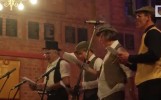 House Singing Competition
House Singing Competition 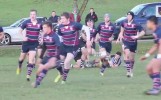 Sport at Ellesmere
Sport at Ellesmere 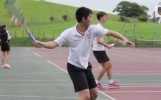 Tennis Academy
Tennis Academy 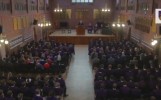 Life at Ellesmere
Life at Ellesmere 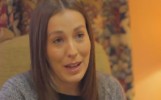 Boarding Life
Boarding Life 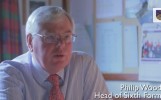 Sixth Form
Sixth Form 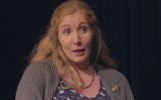 The Arts
The Arts 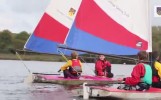 CCF/DofE Adventure Training
CCF/DofE Adventure Training 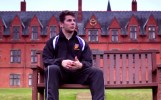 Why Louis Chaudron joined Ellesmere College
Why Louis Chaudron joined Ellesmere College 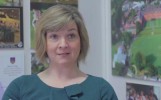 International Admissions
International Admissions